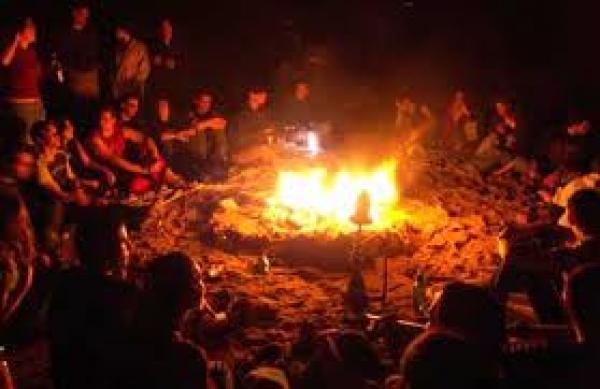Lag BaOmer, also known as Lag LaOmer, is a Jewish holiday celebrated on the 33rd day of the Counting of the Omer, which occurs on the 18th day of the Hebrew month of Iyar. This day marks the hillula (celebration, interpreted by some as anniversary of death) of Rabbi Shimon bar Yochai, a Mishnaic sage and leading disciple of Rabbi Akiva in the 2nd century, and the day on which he revealed the deepest secrets of kabbalah in the form of the Zohar (Book of Splendor), a landmark text of Jewish mysticism. This association has spawned several well-known customs and practices on Lag BaOmer, including the lighting of bonfires, pilgrimages to the tomb of Bar Yochai in the northern Israeli town of Meron, and various customs at the tomb itself. The origins of Lag BaOmer as a minor festival are unclear. The date is mentioned explicitly for the first time in the 13th century by the Talmudist Meiri in his gloss to Yevamot 62b. The Talmudic passage states that during the time of Rabbi Akiva, 24,000 of his students died from a divinely-sent plague during the counting of the Omer. The Talmud goes on to say that this was because they did not show proper respect to one another. Meiri named Lag BaOmer as the day when, "according to a tradition of the geonim", the "plague" ended. While the Counting of the Omer is a semi-mourning period, all restrictions of mourning are lifted on this 33rd day of the Omer. As a result, weddings, parties, listening to music, and haircuts are commonly scheduled to coincide with this day among Ashkenazi Jews. Families go on picnics and outings. Children go out to the fields with their teachers with bows and rubber-tipped arrows. Tachanun, the prayer for special Divine mercy on one's behalf is not said, because when God is showing one a "smiling face," so to speak, as He does especially on the holidays, there is no need to ask for special mercy.The Sephardi custom is to continue mourning practices through the 33rd day of the Omer and celebrate on the 34th day of the Omer, or LaD BaOmer.
Source:Wikipedia

